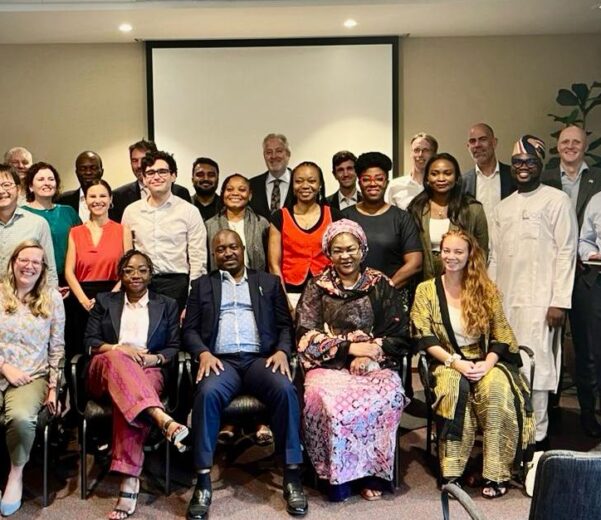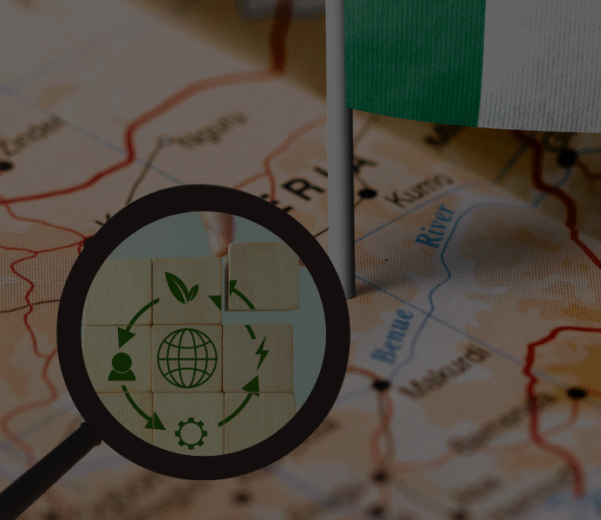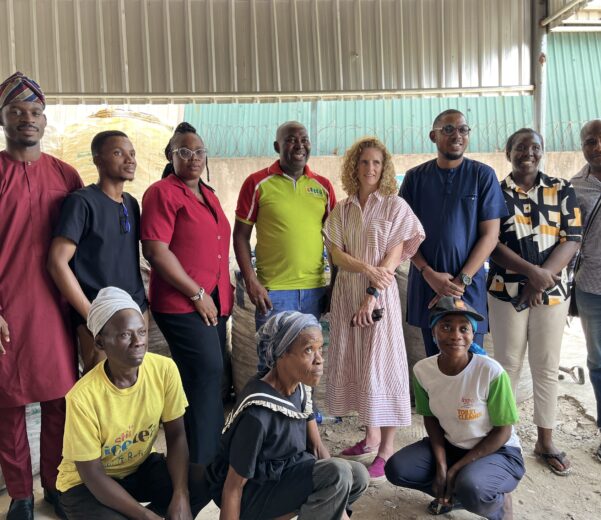Webinar 1 -
Chasing Unicorns in African Circular Business Models.
Thursday, December 8th, 2022 | 3:00 – 4:30 P.M. WAT.
Through a venture capital lens, investment in circular economy business models should be limited to entrepreneurial projects that have capacity to scale. However, many entrepreneurial projects that can be classified as circular may not ever be in a position to scale. Should projects that are unlikely to scale be abandoned? If not, what are the optimal ways to finance uncertain or unscalable projects?
Learn More
Click Here to Watch The Replay
Webinar 2 -
Technology is the key but what should we be unlocking?
Wednesday, February 15th, 2023 | 12:00 P.M. WAT.
Technology is widely understood as an enabler of circular business models. Software helps us to know more about materials, their pedigree, quality, and location, improves logistics and can also facilitate changes in concepts of ownership while hardware has the potential to create second-life opportunities for used materials. Local design and production of hardware solutions furthermore enables entrepreneurs to develop targeted solutions for the local market. However, technology-based circular economy entrepreneurship in Africa has yet to take off in a meaningful way.
This workshop focuses on what technology-based innovation programmes have learned about the needs of tech innovators and product users and discusses how innovation programming can be developed further to address these needs.
Learn More
Click Here to Watch The Replay
Webinar 3 -
Winner Takes All – Does it makes sense to give prizes in entrepreneurship programmes?
Thursday, April 13th, 2023 | 4:00 P.M. WAT.
Entrepreneurship programming has exploded in recent years. According to VoxDev, a research association, aid agencies spend more than one billion dollars annually on entrepreneurship training, with mixed results. In classic “funnel” models, potential entrepreneurs go through a rigorous selection process and are awarded cash and other resources.
Join our guest speakers Boluwatife Arewa, Scrapays and Sarah Ogbewey, Circular Economy Eco-system Builder & Former LOOPLab Project Manager, in this session, as we investigate whether this model is really effective at generating sustainable circular businesses in Africa.
Learn More
Click Here to Watch the Replay
Webinar 4 -
Local Research and Development: Strengthening connections between business and universities.
Local Research and Development: Strengthening connections between business and universities.
Friday, June 15th, 2023. | 4:00 P.M. WAT.
Research and development capacity that connects universities with businesses is a central feature of modern innovation eco-systems including those built on circular economy principles. However, academic researchers and entrepreneurs do not necessarily share the same motivations to conduct research and operate on very different timelines.
How can relationships between businesses and universities be developed to grow resources available for local research and development and to improve opportunity for applied research?
Click Here to Watch the Replay
Webinar 5 -
Policy Entrepreneurship: Defining and advocating for specific needs of CE entrepreneurs.
Policy Entrepreneurship: Defining and advocating for specific needs of CE entrepreneurs.
Friday, August 18, 2023.
Themes related to the needs of entrepreneurs are broadly the same: more resources and infrastructure is needed to support development and regulation should be simplified to ensure managerial attention is focused on commercial issues. Such broad themes unfortunately do not always lead to targeted or implementable policies in the short term.
Are there specific policy issues where there is adequate interest alignment among entrepreneurs to advocate for change? How can local advocacy coordinate with lobbying at the regional and international level to push for policies that favour CE entrepreneurs?
Webinar 6 -
Pathways to Startup Success in Circular Economy.
Pathways to Startup Success in Circular Economy.
Wednesday, October 25th, 2023, | 4:00PM (WAT).
Engaging with entrepreneurs and ecosystem stakeholders, we have gained invaluable insights from their experiences. As we conclude this series, we aim to distill three of our most important lessons:
How can we use these lessons to increase the likelihood that circular businesses operating in Africa will succeed? This session will be used to sketch out a roadmap.










